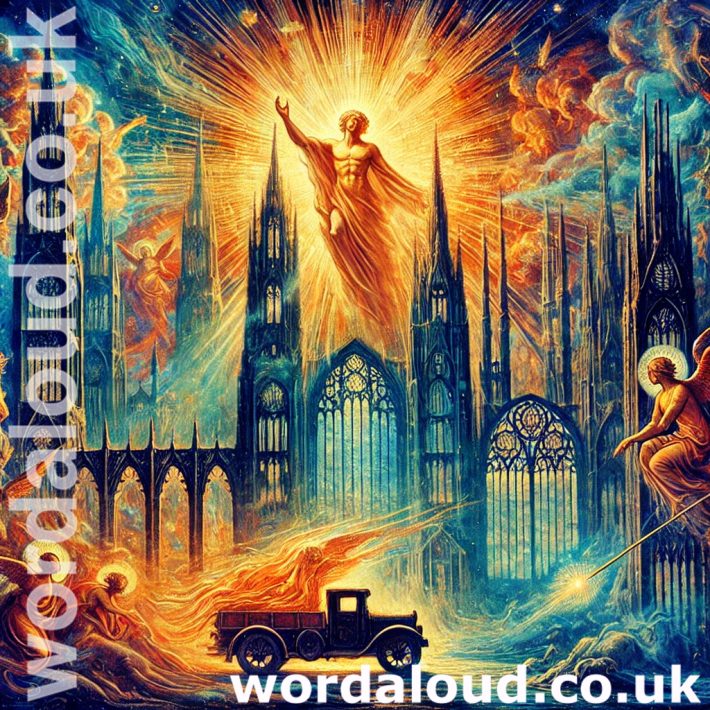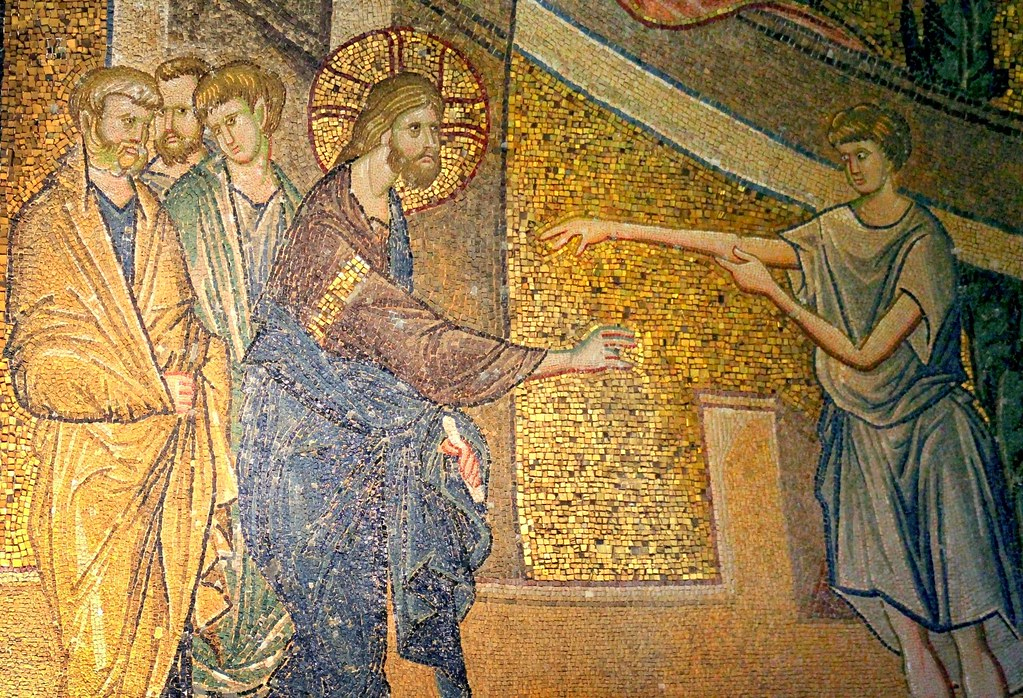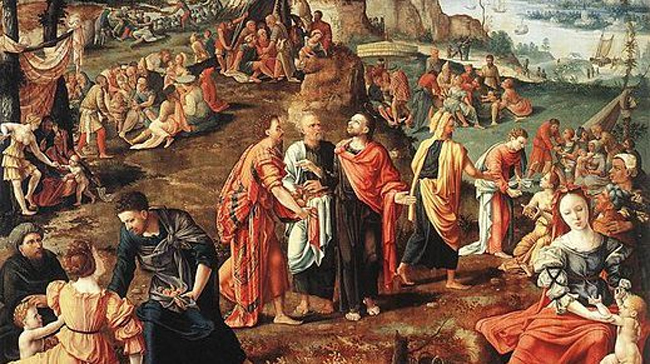William Blake | From Milton | ‘Jerusalem’ | Christian Poems
William Blake | From Milton | ‘Jerusalem’
And did those feet in ancient time
Walk upon England’s mountains green?
And was the holy Lamb of God
On England’s pleasant pastures seen?
And did the Countenance Divine
Shine forth upon our clouded hills?
And was Jerusalem builded here
Among these dark Satanic Mills?
Bring me my Bow of burning gold!
Bring me my Arrows of desire!
Bring me my Spear! O clouds, unfold!
Bring me my Chariot of fire!
I will not cease from Mental Fight,
Nor shall my Sword sleep in my hand,
Till we have built Jerusalem
In England’s green and pleasant land.

![]()
William Blake | From Milton | ‘Jerusalem’
William Blake’s ‘Jerusalem’ is a visionary poem taken from Milton: A Poem, one of Blake’s prophetic works. Though often associated with patriotism, the poem is more complex than a simple celebration of England. It expresses a deep anxiety about the spiritual and moral state of the nation, contrasting an idealized past with the corrupted present. Blake imagines a divine England, once touched by the presence of Christ, now overshadowed by oppressive forces that must be resisted through a struggle of the mind and spirit. The poem follows a regular structure of four quatrains with an ABAB rhyme scheme, and its meter, largely iambic tetrameter, gives it the quality of a hymn or a rallying cry.
The poem begins with a series of rhetorical questions: ‘And did those feet in ancient time / Walk upon England’s mountains green?’ These verses introduce the legend that Christ, as a child, once visited England with Joseph of Arimathea. Though there is no historical basis for this claim, the idea serves as a symbolic foundation for Blake’s vision. The question is not meant to establish fact but to awaken the reader to the possibility that England was once a sacred land. This speculation is immediately followed by a contrast between the past and the present. The reference to ‘dark Satanic Mills’ is widely interpreted as a critique of industrialization, but Blake’s meaning extends beyond the physical factories of his time. The mills symbolize all forms of oppression—political, economic, and spiritual—that crush human imagination and reduce life to mechanical toil. This aligns with Blake’s broader concerns in his work, where he often portrays industrialization, rigid institutions, and unthinking conformity as forces of spiritual destruction.
The tone of the poem shifts dramatically in the third stanza. No longer asking questions, the speaker now issues commands: ‘Bring me my bow of burning gold! / Bring me my arrows of desire!’ These verses call for action, evoking images of divine warfare. The reference to a ‘chariot of fire’ recalls the biblical story of Elijah, who was taken up to heaven in a whirlwind, symbolizing divine power and transformation. Blake envisions a battle not of violence, but of resistance against spiritual decay. The weapons he calls for are not physical but symbolic—passion, imagination, and moral determination. The phrase ‘mental fight’ in the final stanza reinforces this idea. The struggle is one of vision and belief, a rejection of complacency and submission to oppressive systems. Blake declares that he will not rest ‘Till we have built Jerusalem / In England’s green and pleasant land.’ The term ‘Jerusalem’ does not refer to the historical city per se but to a state of spiritual perfection, a new society based on justice, creativity, and human dignity.
Blake’s vision is deeply rooted in his rejection of both industrial capitalism and the rigidity of institutionalized religion. Blake was a radical thinker, critical of both the political establishment and the Church, which he saw as complicit in maintaining systems of control. His Jerusalem is not an appeal to nationalism but to transformation, urging the people to reclaim their imaginative and spiritual power.
William Blake | A Brief Biography
William Blake (1757–1827) was an English poet, painter, and printmaker, whose work was largely unrecognized during his lifetime but has since been regarded as some of the most original and visionary in English literature and art. Born in London, Blake showed artistic talent from an early age and was apprenticed to an engraver before studying briefly at the Royal Academy. Throughout his life, he combined visual and literary art, developing a unique method of relief etching to produce his illuminated books, in which poetry and illustration were inseparable.
Blake’s work is marked by a deeply personal mythology, influenced by his religious mysticism, radical politics, and opposition to institutional authority. His early poetry collections, Songs of Innocence (1789) and Songs of Experience (1794), contrast childlike purity with the corruption of experience, exploring themes of oppression, social injustice, and the loss of spiritual vision. His later prophetic books, including Milton and Jerusalem, contain complex, symbolic narratives reflecting his apocalyptic worldview and rejection of materialism.
Blake lived in relative poverty, sustained by a small circle of admirers, including younger Romantic poets like William Wordsworth and Samuel Taylor Coleridge. Though often dismissed as mad by his contemporaries, he remained deeply committed to his artistic and spiritual visions until his death. Today, he is recognized as a major figure in Romanticism, celebrated for his bold imagination, social criticism, and unorthodox spirituality. Blake’s poem Jerusalem, set to music, has become one of Britain’s most famous hymns.








